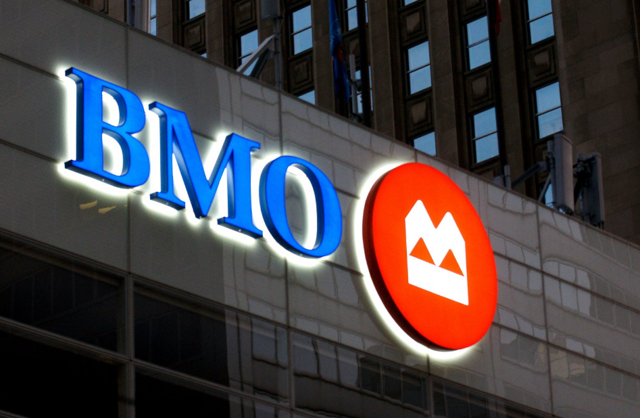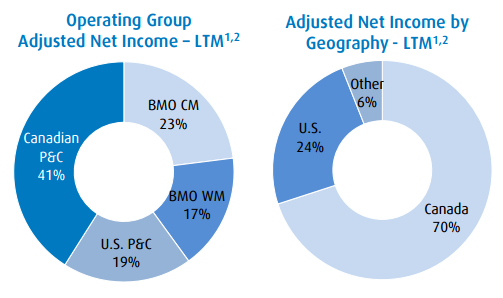Bloggers note: AS A MATTER OF INFORMATION only JUST LOOK AT THE 10 Questions
this is from a few years back no action required .-
see also BANKING www.thecanadianencyclopedia.ca/en/article/banking/
---------------------------------------------------------------------------------------------
 | |
------------------------------------
10 Questions Canadians Should Ask Themselves About Bank Profits
Members and Supporters / Join / Links /
Donate online now to support bank accountability in Canada
(NOTE: The link takes you to Canadahelps.org's donation page for the Democracy Education Network (DEN),
a member group of the CCRC whose "Corporate Responsibility Fund" supports the CCRC's activities)
- "Canadian banks do not operate in an unregulated environment.
Over
the years, they have benefited a great deal from the protection
of the
Bank Act. And that is one reason why Canadian banks have been so
stable
and secure compared to American financial institutions. I
believe it is
time for the banks to give something back."
- Excerpt from a speech by Jean Chrétien, (February 11,
1993)
"If you take a look at the history of this country, in every small town in Canada there has been a bank. Most small towns are desperately fighting tohold on to those bank branches. Obviously, the financial sector permeates every part of your life from your credit to your credit card."
The Hon. Paul Martin
(on CTV's Sunday Edition, April 19, 1998)
Canada's big six banks reported record annual profits in 2010 totalling $21.15 billion (up 32% from $14.34 billion in 2009). Their annual profits are more than 5 times higher than in 1994 (when they were $4.04 billion).
Below are 10 questions Canadians should ask themselves about what banks are doing with our money, and whether their record profits are justified. If you don't like the answers, you have an opportunity to make your voice heard. The federal Bank Act is currently under review, and changes will be made over the next year.
Write to the federal Finance Minister and your Member of Parliament (MP) and ask them to push for bank accountability reforms in Canada (To see a sample letter, click here). No postage is necessary and the address is: House of Commons
Ottawa, Canada K1A 0A6.
1. Should Canada's big five banks be concerned primarily about their shareholders?
The banks always say that their primary concern is to give their shareholders a good return on their investment. However, the money over 20 million Canadians (and Canadian businesses) have deposited in the banks makes up 95% of the total capital base of the banks, while shareholder investments total only 5%. Given that the banks would not exist without depositors' savings, isn't it time they paid more attention to depositors' concerns, including the concerns set out below?
2. Are Canada's big banks good corporate citizens, as they claim?
The banks claim that Canadians should be happy with their high profits because banks contribute to the Canadian economy by paying workers, suppliers, shareholders, taxes, and donating to charities. However, most other large companies contribute in similar ways to the economy, and many Canadians pay taxes at a higher rate, and donate a larger portion of their annual income to charities, than do the banks.
Whether or not banks are good corporate citizens should be based upon whether they serve Canadians and the Canadian economy well in their central activities of providing access to capital (especially for job creation) and adequate banking services for all Canadians.
3. Do Canada's big banks serve people and businesses trying to create jobs well?
The answer to this question remains largely unknown because the banks have refused, for the past several years, to disclose detailed information about how many people apply for loans to start-up or expand a business, how many the banks reject, and the reasons for the rejections. The federal government has refused to require the banks to disclose this information.
Without it, we cannot determine whether the banks are meeting the demand for business loans. We do know that of the banks' total lending to business of about $600 billion, only 3% is small business lending (loans under $100,000), while 77% goes to big business in loans over $5 million. The small and medium-sized business sector has created 90% of the jobs in Canada since 1983, and employs half of all working Canadians. If banks do not meet small businesses' demand for capital, they prevent jobs from being created.
4. Do Canada's banks discriminate against women, minorities, and people with low incomes?
As above, banks have refused to disclose detailed information about their lending to women, minorities, in low-income neighbourhoods or specific regions of Canada. Without this information, it is not possible to determine whether banks discriminate in their provision of services to specific groups, or communities, in the country.
We do know that over 600,000 Canadians, many with low incomes, have no bank account and inadequate access to other banking services. National surveys have shown that a major cause of this problem is that banks' require identification for opening accounts and cashing cheques (even government cheques) that people with low incomes or on social assistance often do not have.
5. Do the banks have adequate complaint-handling services?
Canada's big banks have all set up ombudsman offices to handle complaints from customers (mainly small businesses). In addition, the banks have together set up a national ombudsman office (with the federal government's approval) and they claim that these offices adequately handle complaints. However, all of these offices are fatally-flawed because the ombudsmen are all selected, paid and directed by the banks, and cannot overrule any of the banks' decisions.
Surveys have also shown that over 40% of bank tellers do not know that their bank has a complaint handling process. In contrast, Britain has an independent bank ombudsman who can require banks to pay compensation for losses suffered by customers from unjustifiable bank actions.
6. Do the banks gouge Canadians with service charges?
Many Canadians suspect that they are being gouged by banks, especially by electronic banking charges (such as the extra charge of $1-2 for using another bank's bank machine).
However, we don't know whether banks are gouging consumers because they refuse to disclose how much it costs them to provide their services compared to how much they charge, and the government has refused to require disclosure of this information. Canadians have a right to know this information because it is our money that allows banks to exist.
7. Why are bank credit card interest rates still so high?
The Bank of Canada's lending rate to the banks is at its lowest level in decades (about 2%). However, banks have kept some of their credit card interest rates high (up to 19%) for a record high gap of 17%. Banks claim that they have to keep their rates high because of the costs of consumer fraud, bankruptcies, and replacing lost or stolen cards.
However, the banks refuse to disclose what their actual costs are for their credit card operations, as compared to how much they make from these divisions. The federal government has not required disclosure of this information. Without this information, Canadians cannot determine whether banks gouge us with high credit card interest rates.
8. How have Canada's banks profited from the deficit?
Before 1992, banks were required to keep a percentage of their deposits on reserve with the Bank of Canada. This reserve was security against any unexpected rush of withdrawals, and meant that the Bank of Canada played a central role in creating the money supply.
The reserve requirement was lowered through the 1980s and then eliminated by the federal government in 1992 as the banks persuaded the government that the requirement was like a tax on them. The elimination of the reserve requirement allowed the big banks to increase their holdings of the federal debt from $20 billion (6.1% of the total) in 1990 to $85 billion (17.3%) in 1995.
The Bank of Canada has lowered its debt holdings from over 20% in 1980 down to 5.1% of the total debt ($24 billion) in 1995. The Bank of Canada's reduced debt holdings have added close to $80 billion in interest payments on the federal debt between 1978 and 1995. Without a reinstated reserve requirement, the Bank of Canada's share of the money supply, its holdings of the federal debt, and its clout in financial markets will continue to decrease. This will both cost the federal government more money (in interest paid on the debt) and also has grave implications for Canada's economic sovereignty.
9. Is the government doing enough to ensure Canadians can hold banks accountable?
The federal government has talked a lot about banks' responsibility to all their customers, big and small. However, the government has done little to ensure that banks meet a high standard of service to Canadians and the Canadian economy. As detailed above, the federal government has not required banks to disclose key information about their lending so Canadians can determine if banks adequately support job-creating businesses, or discriminate against specific groups or communities.
The government has approved the banks' ombudsmen even though they all lack independence and have no enforcement powers. And the government has not required banks to disclose essential information which would reveal whether they are gouging consumers with charges and credit card interest rates.
10. What can you do to help push for bank accountability in Canada?
The federal Bank Act is currently under review by the federal government. Write to the federal Finance Minister and your MP and ask them to solve the problems set out above by enacting strong bank accountability measures, and by preventing big bank mergers that will hurt Canadians, communities, and small- and medium-sized businesses. No postage is necessary and the address is: House of Commons Ottawa, Canada K1A 0A6.
Join Canadians across the country in the push for bank accountability. All together we can make a difference.











